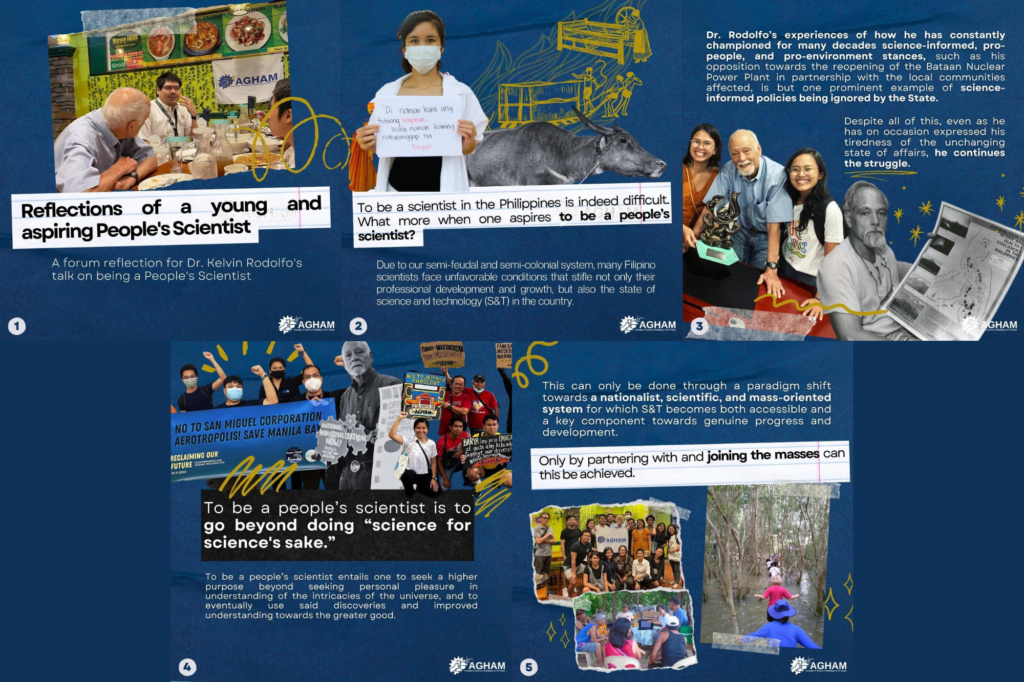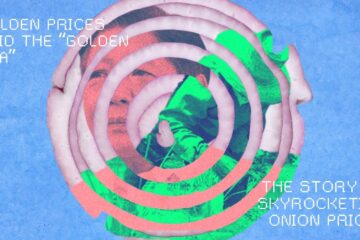Forum Reflection for Dr. Kelvin Rodolfo’s talk on being a People’s Scientist
By: Kevin Cordoviz

To be a scientist in the Philippines is indeed difficult. What more when one aspires to be a people’s scientist? Due to our semi-feudal and semi-colonial system, many Filipino scientists face unfavorable conditions that stifle not only their professional development and growth, but also the state of science and technology (S&T) in the country. From rampant contractualization, low wages, delayed disbursement of funds and salaries, lack of benefits such as hazard pay and 13th month pay, among others, to sifting through mazes of red tape bureaucracy just to be able to do research, these constraints make S&T in the Philippines backward, underdeveloped, and inaccessible. On top of this, the unwillingness of the state to provide adequate support to our scientists and their constant dismissiveness towards science-informed, pro-people, and pro-environment policies further prolongs this maldevelopment and misuse of S&T wherein S&T is merely valued from a profit-oriented standpoint that only benefits the ruling class.
Dr. Rodolfo’s stories of how he has constantly championed for many decades science-informed, pro-people, and pro-environment stances such as his opposition towards the reopening of the Bataan Nuclear Power Plant in partnership with the local communities affected is but one prominent example of science-informed policies being ignored by the State. Despite all of this, even as he has on occasion expressed his tiredness of the unchanging state of affairs, he continues the struggle. It is this decades-long dedication and passion to make science serve the people that really motivated us to continue the path towards being a people’s scientist despite the odds. Unfortunately, his story is very similar to the stories of other people’s scientists whose science-informed advice continue to be ignored, or worse, demonized by the state. This serves as a steep challenge for aspiring people’s scientists.
Science is often viewed as a very objective, emotionless, technical, and purely logical field of knowledge only meant for an elite few. However, a key aspect of science which is the latent curiosity to understand the universe is an integral part of one’s humanity and thus cannot be separated from the rest of humanity’s endeavors which includes the social aspects. To be a people’s scientist is to go beyond doing “science for science’s sake”. To be a people’s scientist entails one to seek a higher purpose beyond seeking personal pleasure in understanding of the intricacies of the universe, and to eventually use said discoveries and improved understanding towards the greater good. As STEM professionals, it is incumbent upon us to look beyond your daily tasks and routines in our labs and ask ourselves “Who are we doing this for? Why are we doing this?”. At the end of the day, the science we do will mean nothing, when it does not help reach this greater good. This can only be done through a paradigm shift towards a nationalist, scientific, and mass-oriented system for which S&T becomes both accessible and a key component towards genuine progress and development. Only by partnering with and joining the masses can this be achieved.

0 Comments